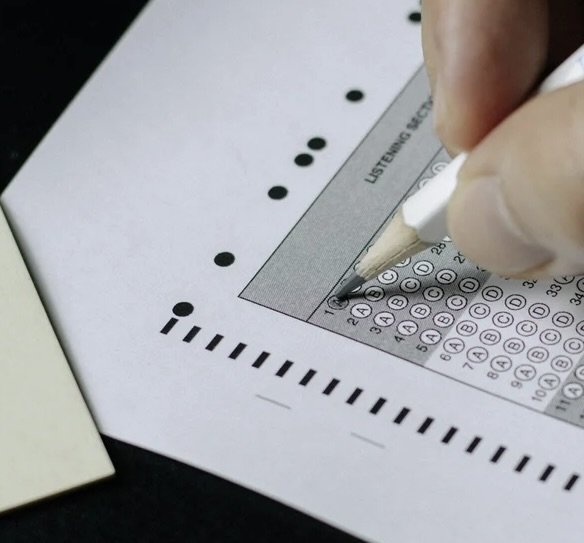Commentary: California’s Wholesale Rebuke of Statewide Testing in an Attempt to Impose Equity, Set Students Up for Failure
Stock image of student taking a test (Photo by Unsplash)
Last week, the University of California, San Diego (UCSD) released a faculty report detailing an alarming decline in preparation among freshmen students in core subject areas.
Most notably, the number of incoming students at the university requiring remedial math increased thirtyfold over just a five-year period, with nearly one in five students failing to meet standards for 8th-grade-level math upon admission in 2025.
Though the report partially attributes the decline to COVID-19 learning loss, the trend of underprepared college students appears to predate the pandemic. Data from 2017 showed high “D” and “F” rates and withdrawal (DFW) rates in 10 series math classes at the University, sometimes reaching 40 percent.
While COVID may have been an aggravating factor, it merely served to accelerate a preexisting trend: California is not adequately preparing its high school students in foundational mathematics, and relaxed graduation and college admissions standards only concealed this growing problem.
On close examination, this should not be surprising. California’s high school graduation requirements for math are among the loosest in the country, only requiring students to complete up to Algebra I. Though the state’s public colleges and universities still require Algebra II for admissions, the subject is not tested at a statewide level, so there is no accountability for whether students have attained proficiency.
More broadly, California was at the forefront of states opting to substantially reduce statewide testing in high school, with the elimination of its exit exams in 2017. At the time, critics of the test argued it was having a disproportionately negative impact on historically disadvantaged students and that its elimination would provide marginalized students with greater access to a higher education.
The results have been concerning. Though California’s college-going rate has increased slightly since the change, completion rates vary widely across university systems, with large disparities by demographics: only 47.2 percent of first-time black students and 56.3 percent of first-time Latino students attain four-year degrees in the Cal State system.
Associate degree and transfer-out numbers are far worse, just 10 percent, in the community college systems, which proportionately serve the most disadvantaged students.
In an effort to impose equity in its K-12 schools, California’s wholesale rebuke of statewide testing has set students up for failure, particularly those it was trying to help.
California may have boasted its 4.5 percent improvement in high school graduation rates after eliminating the exit test, but this is a meaningless data point if the students are not moving on to successful careers or degree attainment.
Other states can and should learn from California’s mistakes. When standards are lowered, even when framed with the best intentions, the students will ultimately lose out.
Though Tennessee has entertained similar legislation to California, thankfully, several members of the Advisory Committee on Innovations in K-12 Education, which met over the last several months, appear to support maintaining high standards, setting our students up for success, and avoiding making California’s mistake.
Steven Bergman serves as Assistant Director of Government Relations for Tennesseans for Student Success. The Tennessee Firefly is a project of and supported by Tennesseans for Student Success.


